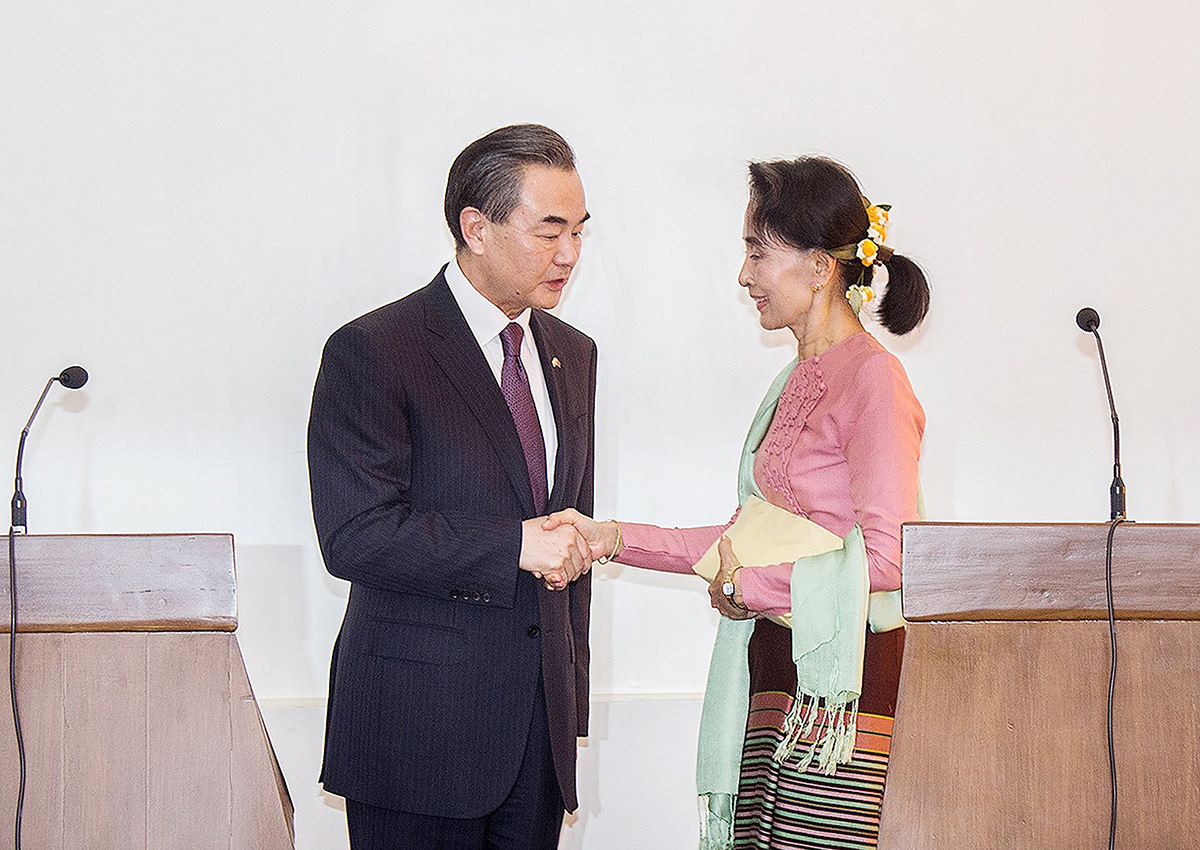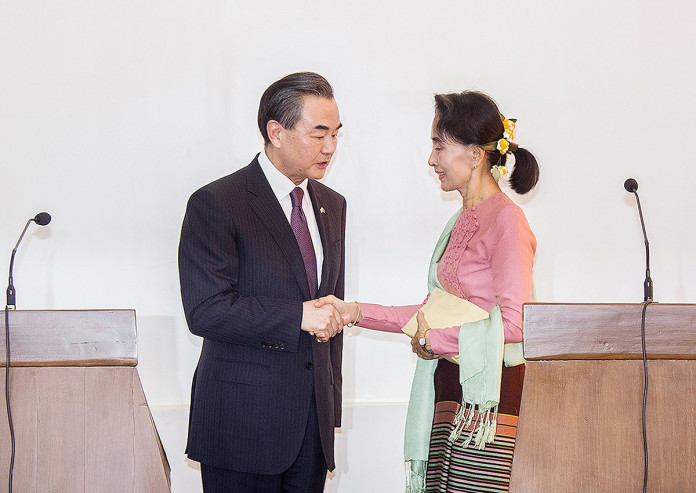YANGON – Myanmar foreign minister Aung San Suu Kyi met her Chinese counterpart in Naypyidaw Tuesday, an official said, as relations with Beijing take centre stage in the first diplomatic foray of her newly installed pro-democracy government.
The Southeast Asian nation sees its giant neighbour – and largest trading partner – as its biggest foreign policy preoccupation with border wars and controversial Beijing-backed mega-projects topping the agenda.
Myanmar’s new civilian administration, sworn-in on March 30, faces a cascade of economic challenges as it inherits the poor nation from the military.
Suu Kyi, the country’s democracy figurehead who holds the post of foreign minister, invited China’s Wang Yi for talks in the capital.
An information ministry official confirmed to AFP that the meeting had begun Tuesday afternoon, without giving further details. Chinese state media also confirmed Wang’s two-day visit.
Beijing was instrumental in shielding Myanmar’s former junta from the full effects of international opprobrium during an era when Suu Kyi languished for years under house arrest.
Chinese firms enjoyed a host of juicy business deals with Myanmar’s former generals and their cronies that were often deeply controversial and seen as exploiting the impoverished nation’s rich natural resources.
Analysts say both nations seek to rebalance the relationship following Myanmar’s historic November elections that saw millions of voters take to the polls to end the military’s half century domination.
“China should be a foreign policy priority for Myanmar, and vice versa. The new government recognises China’s importance, but will also be keen to recalibrate aspects of the two countries’ relations,” said Nyantha Maw Lin, of advisory firm Vriens and Partners.
With a cumulative total of US$15.4 billion (S$20.9 billion) of approved investments in Myanmar, China is by far the country’s largest foreign investor, despite reforms in recent years that have seen Western firms surge back into the long-cloistered nation.
Its interests range from a huge oil and gas pipeline and special economic zone, to dams and mining.
The two countries share a long porous border, which is dotted with ethnic minority rebel groups fighting Myanmar’s government. It also sees huge flows of illicit timber, drugs and jade flood north from Myanmar.
Suu Kyi, who met President Xi Jinping during a visit to Beijing last June, has shown a pragmatic streak in dealing with controversial Chinese interests.
But in a rare sign of pushback, a top party economic adviser in March said the incoming government could rethink a Chinese-backed dam in conflict hit northern Kachin State.
The multi-billion dollar Myitsone hydropower project was suspended in 2011 by the reformist government of Thein Sein.
Beijing is eager to restart the scheme.
The meeting between Suu Kyi and her Chinese counterpart comes amid growing tension between her party and the military, just days after her government took power.
Suu Kyi is barred from presidency by the junta-era constitution. But her party is looking to push a bill through parliament that would give her the vaguely defined new role of state special advisor.
Army MPs, who make up a quarter of the legislature, slammed the bill in a dramatic lower house hearing Tuesday that saw the uniformed soldiers refuse to vote and stand in protest when their attempts at amendments were swatted away by the NLD, which holds a majority.
“It is difficult for the military representatives to continue participating, if (the bill) is voted through without review,” military MP Brigadier General Maung Maung told the chamber.
The bill needs only one more vote in the combined parliament to pass.






